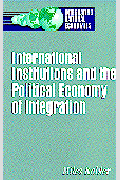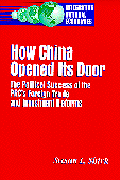Studies in this week’s Hutchins Roundup find that location choices of the ultra-wealthy are very sensitive to state estate taxes, occupation licensing reduces welfare for both consumers and workers and more.
Want to receive the Hutchins Roundup as an email? Sign up here to get it in your inbox every Thursday.
Location choices of the ultra-wealthy are very sensitive to state estate taxes
Prior to 2001, taxpayers received a federal tax credit for their state estate taxes, so estate tax liabilities for the ultra-wealthy did not depend on where the taxpayer lived. This credit was repealed in 2001, making estate tax liabilities highly dependent on state of residence. Enrico Moretti of University of California, Berkeley, and Daniel Wilson of the Federal Reserve Bank of San Francisco find that the number of individuals on the Forbes list of the 400 wealthiest Americans living in states with estate taxes fell by 35% after 2001 compared to states without estate taxes. This outmigration of billionaires reduced wealth subject to state estate taxes by $81 billion, and also lowered income tax revenues over the remaining lifetime of each billionaire. Nonetheless, the authors find that for most states, the benefit of additional revenues from adopting an estate tax significantly exceeds the cost of foregone income tax revenue due to tax-induced mobility.
Occupation licensing reduces welfare for both consumers and workers
Using data from the Current Population Survey from 2015 to 2018, Morris Kleiner of University of Minnesota and Evan Soltas of MIT argue that the welfare costs of occupational licensing surpass the benefits. They find that licensed workers earn 16 percent more per hour and work more hours than unlicensed workers, but licensing lowers overall employment in an occupation by 29 percent. Despite the increase in wages, workers are only compensated for 60 percent of the opportunity cost of licensing. For consumers, licensing increases the price of labor services, but also increases willingness to pay, offsetting about 80 percent of the higher price. Combining the effects on consumers and workers, the authors estimate an average welfare loss of 12 percent from shifting an occupation from unlicensed to licensed.
Americans are paying the price of tariffs imposed on Chinese imports
Since 2018, the U.S. has imposed import tariffs ranging from 10 to 50 percent on goods from China. Using data collected at the border and at retailers, Alberto Cavallo of Harvard University and coauthors estimate that, on average, foreign exporters have passed 92% of the cost of the tariffs on to U.S businesses in the form of higher prices. For example, a 20 percent tariff has been associated with an 18 percent increase in the total price paid by U.S. importers. But the impact of the tariffs on retail prices is more mixed, they say, with many retailers absorbing the higher prices through lower profits rather than passing them on to consumers. That is unlikely to last, the authors warn, because the longer the tariffs remain in place, the greater the pressure on retailers to raise consumer prices.
 Source: Financial Times
Source: Financial Times
“There cannot be winners in a trade war. In the end, the biggest loser is going to be the global economy. And in a way, when you think of trade protectionism, it is actually so illogical. You want access to other countries’ markets, but you do not want them to have access to yours. And when you talk about the global economy, the lifeblood of the global economy is, actually, global trade,” says Lesetja Kganyago, Governor of the South African Reserve Bank and Chairman of the IMF’s International Monetary and Financial Committee
“And in the aftermath of the 2008 financial crisis, the focus of the global community was to get trade, international trade going once again and looking at what has constrained trade finance and all of that stuff because we understood that, at the heart of the global economy is, actually, global trade. […]And because you have impacted adversely on global trade, you impact adversely on the global economy. And because you are impacting on the global economy, you cause uncertainty and, as such, investment does not take place. And because investment is not taking place, the economy is not growing, jobs are lost. And that is what you are actually going to get yourself into. These trade tensions are not in the best interest of the global economy.”
The Brookings Institution is committed to quality, independence, and impact.
We are supported by a diverse array of funders. In line with our values and policies, each Brookings publication represents the sole views of its author(s).











Commentary
Hutchins Roundup: State estate taxes, occupational licensing, and more
October 24, 2019